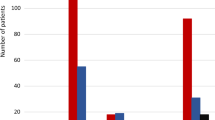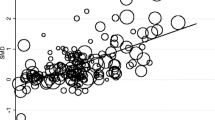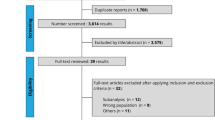Abstract
After 2002, an association between stroke and antipsychotic use was reported in clinical trials and large database studies. This review considers previous quantitative reviews, newly published clinical trials, and recent observational cohort and case-control studies, and focuses on the clinical significance of the risk for stroke, the difference between typical and atypical antipsychotics, the possible at-risk patient profile and the timing of stroke after exposure. A search of MEDLINE covering the period from 1966 to June 2009 was carried out using selected keywords. Inclusion criteria were (i) quantitative reviews on stroke and antipsychotics; (ii) double-blind, placebo-controlled clinical trials involving patients with dementia treated with antipsychotics; and (iii) observational database cohort studies and observational case-control studies investigating the association between stroke and antipsychotics. Clinical trials were excluded if they were single-blind or if patients were affected by dementia and/or other neurological illnesses.
Four reviews with aggregate data, 2 meta-analyses, 13 randomized, double-blind, controlled trials, 7 observational cohort studies and 4 observational case-control studies were selected and analysed. The incidence of cerebrovascular accidents (CVAs) was found to be very low in aggregate reviews and meta-analyses (2–4%). When the number collected was sufficiently high, or different drug treatments were grouped together, the higher rate in subjects exposed to antipsychotics was statistically significant. Inspection of other randomized controlled clinical trials, not included in aggregate reviews and meta-analyses, reported similar rates of CVAs. The majority of observational cohort studies compared typical and atypical antipsychotics and no significant class differences were found. A comparison with non-users was carried out in some cohort studies. In case-control studies, the probability of CVAs in users compared with non-users was in the range of 1.3- to 2-fold greater. Preliminary data also indicate that the highest risk of stroke is related to the first weeks of treatment, and a risk profile for stroke is emerging, such as older age, cognitive impairment and vascular illness. Different pathophysiological pathways may be involved, ranging from the facilitation of thrombosis, pre-existing cardiovascular factors, sedation and a common diathesis for stroke of dementia, schizophrenia and affective illness.
Before prescribing an antipsychotic, clinicians should weigh all the risk factors for a given patient and consider not only the indications as provided by the regulatory agencies, but also the overall effectiveness of typical and atypical antipsychotics.





Similar content being viewed by others
References
Janssen-Ortho Inc. Risperdal® (risperidone) and cerebro-vascular adverse events in placebo-controlled dementia trials. Dear healthcare professional letter [online]. Available from URL: http://www.publiccounsel.net/practice_areas/Mental_Health/practice_aids/pdf/risperdalstroke.pdf [Accessed 2009 Aug 20]
Herrmann N, Lanctôt KL. Do atypical antipsychotics cause stroke? CNS Drugs 2005; 19: 91–103
Schneider LS, Dagerman KS, Insel P. Risk of death with atypical antipsychotic drug treatment for dementia: meta-analysis of randomized placebo-controlled trials. JAMA 2005; 294: 934–1943
Schneider LS, Dagerman K, Insel PS. Efficacy and adverse effects of atypical antipsychotics for dementia: meta-analysis of randomized, placebo-controlled trials. Am J Geriatr Psychiatry 2006; 14: 191–210
Carson S, McDonagh MS, Peterson K. A systematic review of the efficacy and safety of atypical antipsychotics in patients with psychological and behavioural symptom of dementia. J Am Geriatr Soc 2006; 54: 354–61
Sacchetti E, Trifiró G, Caputi A, et al. Risk of stroke with typical and atypical antipsychotics: a retrospective cohort study including unexposed subject. J Psychopharmacol 2008; 22: 39–46
Douglas IJ, Smeeth L. Exposure to antipsychotics and risk of stroke: self-controlled case series study. BMJ 2008; 337: a1227
McShane R, Keene J, Gedling K, et al. Do neuroleptic drugs hasten cognitive decline in dementia? Prospective study with necropsy follow up. BMJ 1997; 314: 266–70
Schneider LS, Tariot PN, Dagerman KS, et al. Effectiveness of atypical antipsychotic drugs in patients with Alzheimer’s disease. N Engl J Med 2006; 355: 1525–38
Caligiuri MR, Jeste DV, Lacro JP. Antipsychotic-induced movement disorders in the elderly: epidemiology and treatment recommendations. Drugs Aging 2000; 17: 363–84
Herrmann N, Lanctôt KL. Atypical antipsychotics for neuropsychiatric symptoms of dementia: malignant or maligned? Drug Safety 2006; 29: 833–43
Herrmann N, Lanctôt KL. Pharmacologic management of neuropsychiatric symptoms of Alzheimer disease. Can J Psychiatry 2007; 52: 630–46
Jeste DV, Rockwell E, Harris MJ, et al. Conventional versus newer antipsychotics in elderly patients. Am J Geriatr Psychiatry 1999; 7: 70–6
Ballard C, Waite J, Birks J. Atypical antipsychotics for aggression and psychosis in Alzheimer’s disease. Cochrane Database Syst Rev 2006; (1): CD003476
Salzman C, Jeste DV, Meyer RE, et al. Elderly patients with dementia-related symptoms of severe agitation and aggression: consensus statement on treatment options, clinical trials methodology, and policy. J Clin Psychiatry 2008; 69: 889–98
Leucht S, Corves C, Arbter D, et al. Second-generation versus first-generation antipsychotic drugs for schizophrenia: a meta-analysis. Lancet 2009; 373: 31–41
Alexopoulos GS, Streim J, Carpenter D, et al. Using antipsychotic agents in older patients. J Clin Psychiatry 2004; 65 Suppl. 2: 5–99 287
IMS Health. IMS national disease and therapeutic index: proceedings of the Plymouth Meeting. Plymouth: IMS Health, 2005
Valiyeva E, Herrmann N, Rochon PA, et al. Effect of regulatory warnings on antipsychotic prescription rates among elderly patients with dementia: a population-base time-series analysis. CMAJ 2008; 179: 438–46
Shojania KG, Sampson M, Ansari MT, et al. How quickly do systematic reviews go out of date? A survival analysis. Ann Intern Med 2007; 147: 224–33
Wooltorton E. Risperidone (Risperdal): increased rate of cerebrovascular events in dementia trials. CMAJ 2002; 167: 1269–70
Wooltorton E. Olanzapine (Zyprexa): increased incidence of cerebrovascular events in dementia trials [letter]. CMAJ 2004; 170: 1395
De Deyn PP, Katz IR, Brodaty H, et al. Management of agitation, aggression, and psychosis associated with dementia: a pooled analysis including three randomized, placebo-controlled, double-blind trials in nursing home residents treated with risperidone. Clin Neurol Neurosurg 2005; 107: 497–508
Kryzhanovskaya LA, Jeste DV, Young CA, et al. A review of treatment-emergent adverse events during olanzapine clinical trials in elderly patients with dementia. J Clin Psychiatry 2006; 67: 933–45
Brodaty H, Ames D, Snowdon J, et al. Risperidone for psychosis of Alzheimer disease and mixed dementia: results of a double blind, placebo controlled trial. Int J Geriatr Psychiatry 2005; 20: 1153–7
Deberdt WG, Dysken M, Rappaport SA, et al. Comparison of olanzapine and risperidone in the treatment of psychosis and associated behavioral disturbances in patients with dementia. Am J Geriatr Psychiatry 2005; 13: 722–30
De Deyn P, Jeste DV, Swanink R, et al. Aripiprazole for the treatment of psychosis in patients with Alzheimer disease: a randomized, placebo controlled study. J Clin Psycho-pharmacology 2005; 25: 463–7
Mintzer J, Greenspan A, Caers I, et al. Risperidone in the treatment of psychosis of Alzheimer disease: results from a prospective clinical trial. Am J Geriatr Psychiatry 2006; 14: 280–91
Suh GH, Greenspan AJ, Choi SK. Comparative efficacy of risperidone versus haloperidol on behavioural and psychological symptoms of dementia. Int J Geriatr Psychiatry 2006; 21: 654–60
Tariot PN, Schneider L, Katz IK, et al. Quetiapine treatment of psychosis associated with dementia: a double blind, randomized, placebo controlled clinical trial. Am J Geriatr Psychiatry 2006; 14: 767–76
Verhei FRJ, Verkaaik M, Lousberg R. Olanzapine vs. haloperidol in the treatment of agitation in elderly patients with dementia: results of a randomized controlled double blind trial. Dement Geriatr Cogn Disord 2006; 21: 1–8
Holmes C, Wilkinson D, Dean C, et al. Risperidone and rivastigmine and agitated behaviour in severe Alzheimer disease: a randomised, double blind, placebo controlled study. Int J Geriatr Psychiatry 2007; 22: 380–1
Mintzer J, Tune LE, Breder CD, et al., Aripiprazole for the treatment of psychoses in institutionalized patients with Alzheimer dementia: a multicenter, randomized, double-blind, placebo controlled assessment of three fixed doses. Am J Geriatr Psychiatry 2007; 15: 918–31
Naber D, Greenspan A, Schreiner A. Efficacy and safety of risperidone in the treatment of elderly patients suffering from organic brain disesase (organic brain syndrome): results from a double blind, randomized, placebo-controlled clinical trial. Psychopharmacology 2007; 191: 1027–9
Zhong KX, Tariot PN, Mintzer J, et al. Quetiapine to treat agitation in dementia: a randomized, double blind, placebo-controlled study. Curr Alzheimer Res 2007; 4: 81–93
Streim JE, Portstein AP, Breder CD, et al. A randomized, double blind, placebo-controlled study of aripiprazole for the treatment of psychosis in nursing home patients with Alzheimer disease. Am J Geriatr Psychiatry 2008; 16: 537–50
Ostbye T, Hill G, Steenhuis R. Mortality in elderly Canadians with and without dementia: a 5-year follow-up. Neurology 1999; 53: 521–6
Cordonnier C, Hénon H, Derambure P, et al. Influence of pre-existing dementia on the risk of post-stroke epileptic seizures. J Neurol Neurosurg Psychiatry 2005; 76: 1649–53
Appelros P, Nydevik I, Viitanen M. Poor outcome after first-ever stroke: predictors for death, dependency, and recurrent stroke within the first year. Stroke 2003; 34: 122–6
Herrmann N, Mamdani M, Lanctôt KL. Atypical antipsychotics and risk of cerebrovascular accidents. Am J Psychiatry 2004; 161: 1113–5
Gill SS, Rochon PA, Herrmann N, et al. Atypical antipsychotic drugs and risk of ischaemic stroke: population based retrospective cohort study. BMJ 2005; 330: 445
Finkel S, Kozma C, Long S, et al. Risperidone treatment in elderly patients with dementia: relative risk of cerebrovascular events versus other antipsychotics. Int Psychogeriatr 2005; 17: 617–29
Layton D, Harris S, Wilton LV, et al. Comparison of incidence rates of cerebrovascular accidents and transient ischaemic attacks in observational cohort studies of patients prescribed risperidone, quetiapine or olanzapine in general practice in England including patients with dementia. J Psychopharmacol 2005; 19: 473–82
Barnett MJ, Wehring H, Perry PJ. Comparison of risk of cerebrovascular events in an elderly VA population with dementia between antipsychotic and nonantipsychotic users. J Clin Psychopharmacol 2007; 27: 595–601
Sacchetti E, Turrina C, Cesana B, et al. Timing of stroke in elderly people exposed to typical and atypical antipsychotics: a replication cohort study after the paper of Kleijer et al. J Psychopharmacol. Epub 2009 Mar 20
Liperoti R, Gambassi G, Lapane KL, et al. Cerebrovascular events among elderly nursing home patients treated with conventional or atypical antipsychotics. J Clin Psychiatry 2005; 66: 1090–6
Percudani M, Barbui C, Fortino I, et al. Second-generation antipsychotics and risk of cerebrovascular accidents in the elderly. J Clin Psychopharmacol 2005; 25: 468–70
Kleijer BC, van Marum RJ, Egberts AC, et al. Risk of cerebrovascular events in elderly users of antipsychotics. J Psychopharmacol 2009; 23: 909–14
Brook OH. Mortality in the long-stay population of Dutch mental hospitals. Acta Psychiatr Scand 1985; 71: 626–35 288
Allebeck P, Wistedt B. Mortality in schizophrenia: a ten-year follow-up based on the Stockholm County inpatient register. Arch Gen Psychiatry 1986; 43: 650–3
Schwalb H, Schimana W, Brüninghaus H, et al. Mortality of hospitalized psychiatric patients: results of a 10-year study. Fortschr Neurol Psychiatr 1987; 55: 83–90
Finkel S, Kozma C, Long S, et al. Risperidone treatment in elderly patients with dementia: relative risk of cerebrovascular events versus other antipsychotics. Int Psychogeriatr 2005; 17: 617–29
Zornberg GL, Jick H. Antipsychotic drug use and risk of first-time idiopathic venous thromboembolism: a case-control study. Lancet 2000; 356: 1219–23
Yang TY, Chung KJ, Huang TL, et al. Massive pulmonary embolism in a young patient on clozapine therapy. J Emerg Med 2004; 27: 27–9
Hägg S, Bate A, Stahl M, et al. Association between thromboembolism and antipsychotics: a study of the WHO database of adverse drug reactions. Drug Saf 2008; 31: 685–94
Liperoti R, Pedone C, Lapane KL, et al. Venous thromboembolism among elderly patients treated with atypical and conventional antipsychotic agent. Arch Intern Med 2005; 165: 2677–82
Hägg S, Spigset O. Antipsychotic induced venous thromboembolism: a review of the evidence. CNS Drugs 2002; 16: 765–76
Eigenbrodt ML, Rose KM, Couper DJ, et al. Orthostatic hypotension as a risk factor for stroke: the Atherosclerosis Risk In Communities (ARIC) study. Stroke 2000; 31: 2307–13
Chamorro A. Role of inflammation in stroke and athero-thrombosis. Cerebrovasc Dis 2004; 17 Suppl. 3: 1–5
Dziedzic T, Gryz EA, Turaj W, et al. Serum interleukin-6 soluble receptor in relation to interleukin-6 in stroke patients. J Mol Neurosci 2004; 24: 293–8
Wada-Isoe K, Wakutani Y, Urakami K, et al. Elevated interleukin-6 levels in cerebrospinal fluid of vascular dementia patients. Acta Neurol Scand 2004; 110: 124–7
Zhang XY, Zhou DF, Zhang PY, et al. Elevated interleukin-2, interleukin-6 and interleukin-8 serum levels in neuroleptic-free schizophrenia: association with psychopathology. Schizophr Res 2002; 57: 247–58
O’Brien SM, Scott LV, Dinan TG. Cytokines: abnormalities in major depression and implications for pharmacological treatment. Hum Psychopharmacol 2004; 19: 397–403
Mattson MP, Shea TB. Folate and homocysteine metabolism in neural plasticity and neurodegenerative disorders. Trends Neurosci 2003; 26: 137–46
Adibhatla RM, Hatcher JF. Altered lipid metabolism in brain injury and disorders. Subcell Biochem 2008; 49: 241–68
Abel T, Zukin RS. Epigenetic targets of HDAC inhibition in neurodegenerative and psychiatric disorders. Curr Opin Pharmacol 2008; 8: 57–64
Imre G. The preclinical properties of a novel group II metabotropic glutamate receptor agonist LY 379268. CNS Drug Rev 2007; 13: 444–64
Yulug B, Yildiz A, Güzel O, et al. Risperidone attenuates brain damage after focal cerebral ischemia in vivo. Brain Res Bull 2006; 69: 656–9
Yulug B, Yildiz A, Hüdaoglu O, et al. Olanzapine attenuates brain damage after focal cerebral ischemia in vivo. Brain Res Bull 2006; 71: 296–300
Schetz JA, Perez E, Liu R, et al. A prototypical Sigma-1 receptor antagonist protects against brain ischemia. Brain Res 2007; 1181: 1–9
Yulug B, Bakar M, Ozan E. The neuroprotective effect of olanzapine. J Neuropsychiatry Clin Neurosci 2008; 20: 107–8
Mukherjee S, Schnur DB, Reddy R. Family history of type 2 diabetes in schizophrenic patients [letter]. Lancet 1989; I: 495
Lyons MJ, Bar JL, Kremen WS, et al. Nicotine and familial vulnerability to schizophrenia: a discordant twin study. J Abnor Psychol 2002; 111: 687–93
Faraone SV, Su J, Taylor L, et al. A novel permutation testing method implicates sixteen nicotinic acethylcholine receptor genes as risk factors for smoking in schizophrenia families. Hum Hered 2004; 57: 59–68
Gough SC, O’Donovan MC. Clustering of metabolic comorbidity in schizophrenia: a genetic contribution? J Psychopharmacol 2005; 19 Suppl. 6: 47–55
US FDA. Public health advisory: deaths with antipsychotics in elderly patients with behavioural disturbances [online]. Available from URL: http://www.fda.gov/Drugs/DrugSafety/PublicHealthAdvisories/ucm053171.htm [Accessed 2009 Aug 20]
US FDA. FDA alert: FDA is notifying healthcare professionals that both conventional and atypical antipsychotics are associated with an increased risk of mortality in elderly patients treated for dementia-related psychosis [online]. Available from URL: http://www.fda.gov/Drugs/DrugSafety/PostmarketDrugSafetyInformationforPatientsandProviders/ucm124830.htm [Accessed 2010 Jan 15]
Sultzer DL, Davis SM, Tariot PN, et al. Clinical symptom responses to atypical antipsychotic medications in Alzheimer’s disease: phase 1 outcomes from the CATIE-AD effectiveness trial. Am J Psychiatry 2008; 165: 844–54
Sacchetti E, Valsecchi P, Parrinello G. A randomized, flexible-dose, quasi-naturalistic comparison of quetiapine, risperidone and olanzapine in the short-term treatment of schizophrenia: the QUERISOLA-TRIAL. Schizophr Res 2008; 98: 55–65
Tandon R, Fleischhacker WW. Comparative efficacy of antipsychotics in the treatment of schizophrenia: a critical assessment. Schizophr Res 2005; 79: 145–55
Tandon R, Jibson MD. Comparing efficacy of first-line atypical antipsychotics: no evidence of differential efficacy between risperidone, olanzapine, quetiapine, ziprasidone, and aripiprazole. Int J Psychiatry Clin Pract 2005; 9: 204–12
Acknowledgements
This study was supported in part by the Health Authority of the Lombardia Region (Project 153), Italy. Professor Emilio Sacchetti has received funding for consultancy, research, advisory board membership and sponsored lectures from Abbott, AstraZeneca, Boehringer Ingelheim, Bristol-Myers Squibb, Dainippon Sumitomo Pharma, Eli Lilly, GlaxoSmithKline, Innova Pharma, Italfarmaco, Janssen-Cilag, Lundbeck, Pfizer, Sanofi-aventis and Wyeth Lederle. Professor Cesare Turrina has received funding for sponsored lectures from Boehringer-Ingelheim and Janssen. Doctor Paolo Valsecchi has received funding for research and sponsored lectures from Abbott, AstraZeneca, Boehringer Ingelheim, Bristol-Myers Squibb, Eli Lilly, Innova Pharma, Janssen-Cilag, Lundbeck, Pfizer and Wyeth Lederle.
Author information
Authors and Affiliations
Corresponding author
Electronic supplementary material
Rights and permissions
About this article
Cite this article
Sacchetti, E., Turrina, C. & Valsecchi, P. Cerebrovascular Accidents in Elderly People Treated with Antipsychotic Drugs. Drug-Safety 33, 273–288 (2010). https://doi.org/10.2165/11319120-000000000-00000
Published:
Issue Date:
DOI: https://doi.org/10.2165/11319120-000000000-00000




